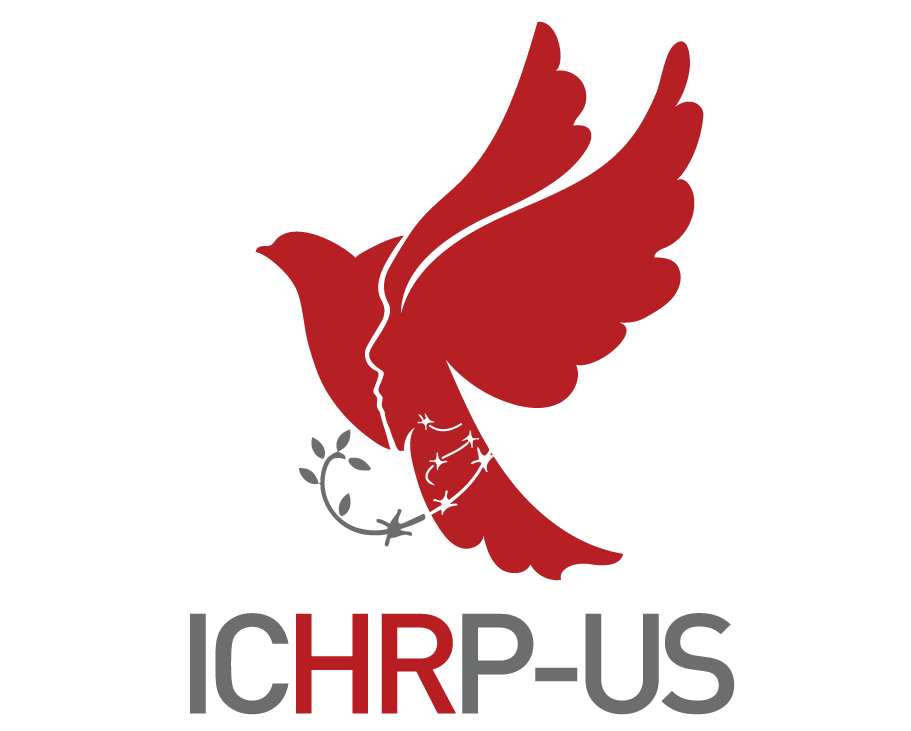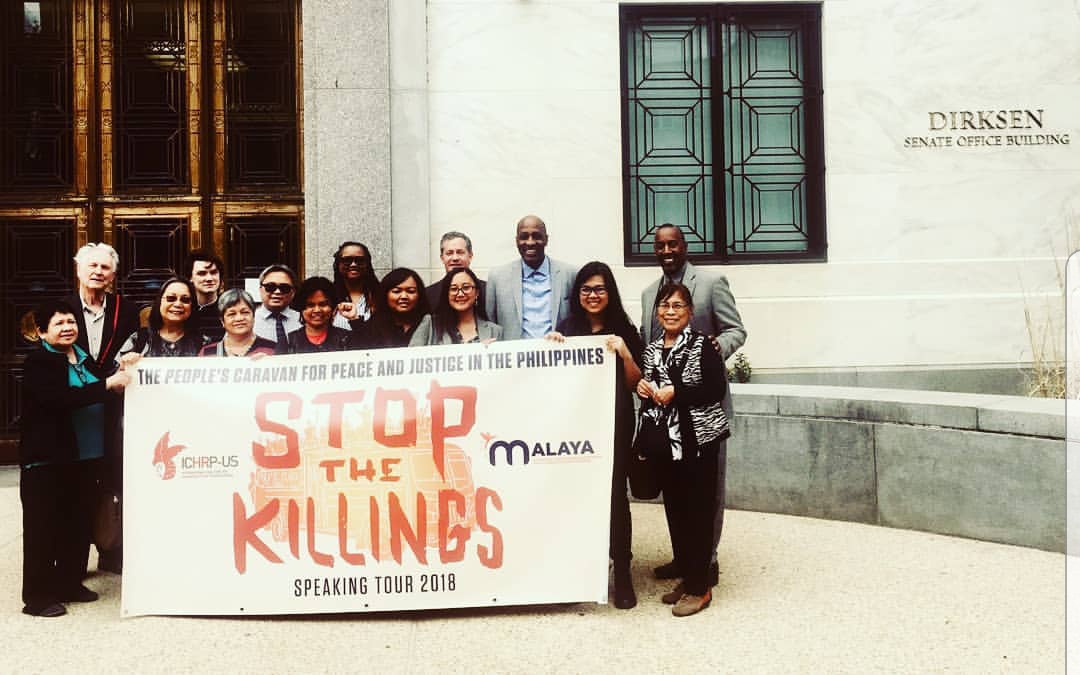On the heels of the International Coalition for Human Rights in the Philippines (ICHRP US) Stop the Killings Speaking Tour: The People’s Caravan for Peace & Justice in the Philippines, the Senate Appropriations subcommittee on State Foreign operations adopted new language that adds to the international condemnation of human rights violations under President Duterte. The national speaking tour kicked off in Washington D.C. and included advocacy days led by the Ecumenical Advocacy Network on the Philippines (EANP), which featured testimony from Philippine indigenous human rights defenders in 20 congressional visits. The visits urged members of Congress to restrict aid to the Armed Forces of the Philippines (AFP) and the Philippine National Police.
“It is good to see that at least some members of the US Congress are responding to the outcries of Filipinos and their allies in the US about the many serious human rights abuses in the Philippines,” said Paul Bloom, co-coordinator of EANP.
On June 21, the Senate Appropriations Committee adopted language on extra-judicial killings in the funding bill for the US State Department Foreign Operations, requiring the Secretary of State to submit a report within 90 days of enactment “assessing the extent to which the AFP is respecting human rights and the rule of law, particularly regarding involvement in extrajudicial killings, and the investigation and prosecution of military personnel who commit gross human rights violations.” It required that the report “include a description of the steps taken by the AFP to implement policies and reforms to prevent such abuses.”
A week earlier the House of Representatives Appropriations Committee approved their version of the funding bill. The Committee stated that, “Extrajudicial killings in the Philippines, including those committed in the conduct of the anti-drug campaign, erode confidence in the Government of the Philippines’ commitment to human rights, due process, and the rule of law”.
The funding bills prohibit the PNP from using any US aid funds for its program of extrajudicial killings in the war on drugs. The bills require that ” — funds be made available to USAID [Agency for International Development] to continue support for the national and community based drug treatment and demand reduction program implemented by the Philippine Department of Health and local entities”.
“This victory is small, but significant,” said Reverend Dr. Mary Susan Gast, Chair of the National Ecumenical-Interfaith Forum for Filipino Concerns in Northern California (NEFFCON NorCal). “Our organizing and persistent communication with legislators have resulted in Senators’ spotlighting extra-judicial killings in the Philippines and calling for accountability and reform as conditions for receiving military funding from the United States.”
The bills allocate funding for fiscal year 2019, which begins October 1, 2018.
The human rights language in these funding bills comes in the wake of reports of an excess of 20,000 killings in President Duterte’s war on drugs; his recent listing of 600 suspected terrorists that includes human rights defenders and even the UN Special Rapporteur on Indigenous Rights; and, of many recent reports of killings of human rights defenders, indigenous rights leaders, environmental activists, and religious leaders.
“So long as human rights abuses in the Philippines persist, so will our legislative advocacy to ensure that our U.S. tax dollars do not contribute to the suffering of Filipinos,” said Pam Tau Lee, Chair of ICHRP US. “We will continue to strengthen the global movement for just and lasting peace in the Philippines.”
The network of groups involved in advocacy efforts included EANP, ICHRP, NEFFCON Norcal, the Justice and Witness Ministries of the United Church of Christ, U.S. Filipinos for Good Governance, and StoptheDrugWar.org.
##

